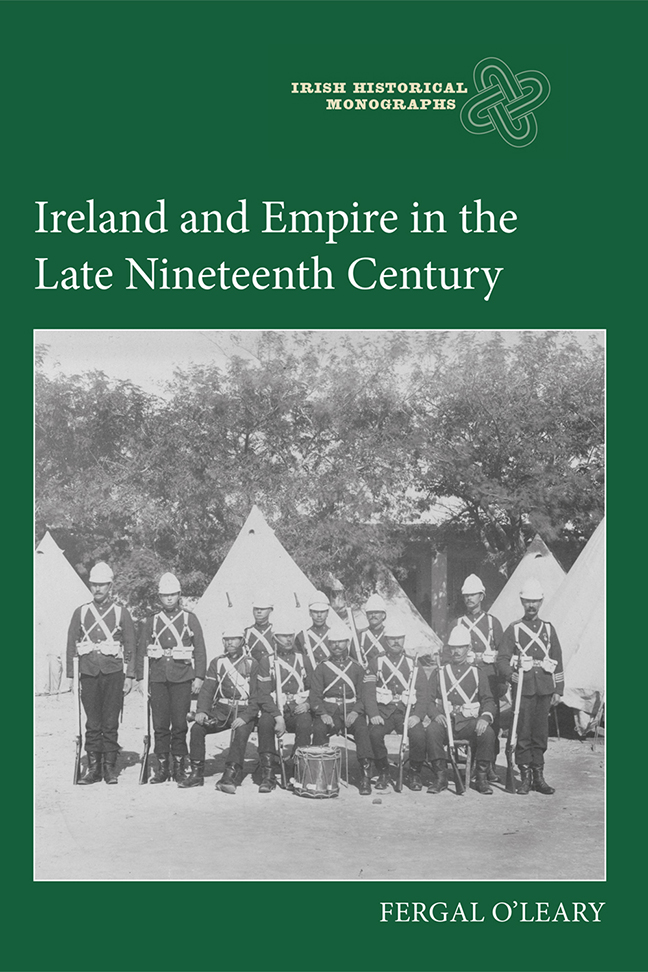7 - Economic Ideas: Profit from the Empire or from Home Rule?
Published online by Cambridge University Press: 17 December 2023
Summary
Perhaps if the English factory-owners had chosen Enniscorthy, County Wexford, instead of a rival town about thirty miles away, the situation might have been better. The establishment of a factory by Kynoch & Co. in Arklow, County Wicklow, a few years earlier, had been a success story for the locality. Townspeople in Enniscorthy would have gladly welcomed a factory like it. Only a few weeks before Christmas 1897, the lecture hall at Enniscorthy's Athenaeum Theatre was full of locals who were eager to hear addresses by prominent men who hopefully had the answers to the town's economic plight. Kynoch's investment in Arklow was cited by Mr Fleming, a local solicitor, as an example that local representatives should seek to emulate by attracting a new factory to the Wexford town.
Regardless of their politics or religion, it is fair to say that those gathered at this Enniscorthy meeting, held to discuss the town's industrial resources, earnestly desired their town and district to prosper. The Earl of Mayo, who was a leading figure in the Financial Reform League, in his address to the attendees, remarked that Ireland was largely an agricultural country, and poorer than industrial England with its global empire, yet he remained optimistic for Ireland's economic future. Although the matter of excessive imperial taxation in Ireland was disputed, the Earl considered the government's over-taxation an ‘insidious barrier’ to Irish industrial development. He was adamant that Irishmen of ‘every party, creed, and class’ were united in the campaign to achieve financial redress for Ireland. These hopeful remarks by the Earl of Mayo were enthusiastically received by those in the crowded lecture hall.
Sight should not be lost of the economic context of Ireland's experience of empire in the late nineteenth century. The facts of economic underdevelopment in large parts of Ireland, Britain's booming industrial economy and its empire of commercial opportunity, gave Irish observers much to consider. A sense of economic patriotism was keenly felt by nationalists and unionists alike, but very different visions for the future of Ireland's economy existed which went to the heart of Irish political divisions. And there were other observers, frustrated with economic (and political) stagnation in Ireland, who pragmatically called for Irish politicians to rise above party politics and work together for the common good. Political arguments on the question of Irish self-government, whether for or against it, broadly reflected different economic experiences of empire.
- Type
- Chapter
- Information
- Ireland and Empire in the Late Nineteenth Century , pp. 191 - 219Publisher: Boydell & BrewerPrint publication year: 2023



